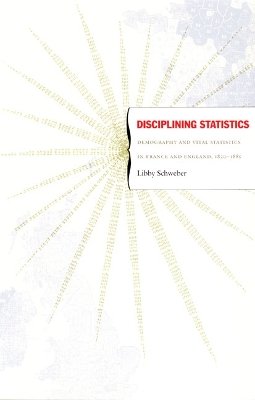
Disciplining Statistics: Demography and Vital Statistics in France and England, 1830–1885
Libby Schweber
Tracing the introduction and promotion of vital statistics and demography, Schweber identifies the institutional conditions that account for the contrasting styles of reasoning. She shows that the different reactions to statistics stemmed from different criteria for what counted as scientific knowledge. The French wanted certain knowledge, a one-to-one correspondence between observations and numbers. The English adopted an instrumental approach, using the numbers to influence public opinion and evaluate and justify legislation.
Schweber recounts numerous attempts by vital statisticians and demographers to have their work recognized as legitimate scientific pursuits. While the British scientists had greater access to government policy makers, and were able to influence policy in a way that their French counterparts were not, ultimately neither the vital statisticians nor the demographers were able to institutionalize their endeavors. By 1885, both fields had been superseded by new forms of knowledge. Disciplining Statistics highlights how the development of “scientific” knowledge was shaped by interrelated epistemological, political, and institutional considerations.
Product Details
About Libby Schweber
Reviews for Disciplining Statistics: Demography and Vital Statistics in France and England, 1830–1885
Matthew Connelly
American Journal of Sociology
“[Schweber’s] work adds to a growing body of literature about the origins of the new social sciences in the nineteenth century, and their relationship to other sciences, the state, and public-policy formation. . . . The work is a closely argued, careful, and detailed reading of the organizational forms, intellectual debates, and scientific practices created by the men who defined, literally named, and built the new population sciences.”
Margo J. Anderson
Journal of Interdisciplinary History
“Schweber succeeds in terms of many of the goals she sets out at the beginning of her study. With the aid of an excellent opening historiographical survey in particular, we are reminded of the issues that divide scholars when it comes to discipline formation. Indeed, Schweber's own argument about how best to approach such subject matter offers many important insights for historians of science to consider.”
Chris Renwick
British Journal for the History of Science
